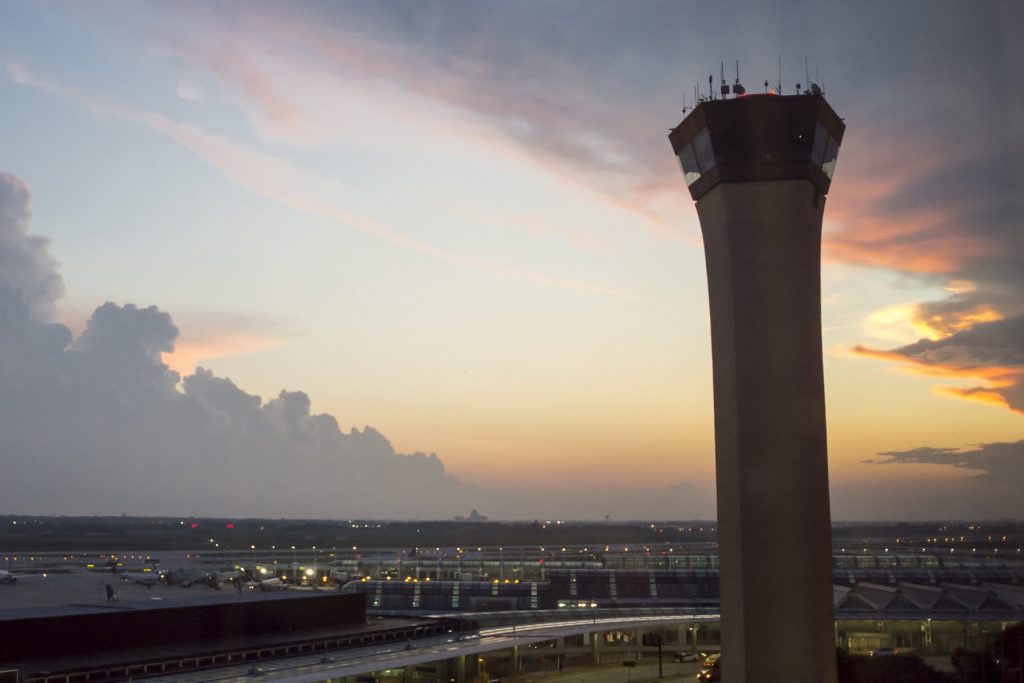Skift Take
The diversion of a Ryanair flight to Belarus a week ago to detain an outspoken critic and journalist shows us that air traffic control may be increasingly vulnerable to the politics of autocracies. That should send a chill through airline C-suites with the industry needing as few disruptions as possible to chart its recovery.
As airlines latch on to the good news that more and more people are booking flights after the worst year in the modern history of commercial aviation, it’s easy to look beyond the hijacking of a Ryanair flight — en route from Greece to Lithuania — to Minsk in Belarus as a scary but almost certain anomaly.
After all, the impact to business from the May 23 incident was nil. And the reactions were mostly as expected.
The big global airlines group, the International Air Transport Association (IATA), strongly condemned “any interference or requirement for landing of civil aviation operations.” As Skift’s Airline Weekly reported, the European Union advised the bloc’s airlines to avoid Belarusian airspace and will ban Belarusian carriers from overflying European airspace and to bar the country’s airlines from landing in the EU. By Thursday, the United Nations’ International Civil Aviation Organization said it would investigate the incident that resulted in a journalist on board the Ryanair being taken into custody.
The strongest reaction expectedly came from Ryanair CEO Michael O’Leary, who in his usual blunt fashion called his jet’s diversion from its intended course to Lithuania a “state-sponsored hijacking.”
If the investigations determine the Belarus’ strongman President Alexander Lukashenko played a direct role in ordering the flight grounded to detain a critic of his regime, it would not surprise many who have seen air traffic control as increasingly susceptible to the politics of global autocrats, no longer just targets for terrorist networks.
The Belarus incident sends a loud message to airline C-suites at a time when the focus of executives is the bottom-line lifeline of vaccines and a travel recovery picking up momentum. But the next Belarus could see wider network disruptions, cancelled flights, or something more unspeakable. All that could affect bookings when aviation is still so fragile.
The condemnations from the large global carriers needs to be consistent and louder. As Anne Applebaum writes this week in The Atlantic: “In autocratic capitals all over the world, dictators and their flunkies are also watching to see how the West reacts—whether Lukashenko gets away with it and whether, perhaps, this new tool of oppression will become available to them too. Invariably, others will seek to use it, if only because it sends a message to their dissident and exile communities: You are not safe. You are never safe. Not even if you live in a democracy; not even if you have political asylum; not even if you are sitting on a commercial plane, thousands of feet above the ground.”
On Friday, the Federal Aviation Administration urged U.S. passenger airlines to exercise extreme caution while flying over Belarus.
And while the airspace over Belarus may seem like a minuscule patch of lost opportunity for airlines, the warning from writer Applebaum, who has written extensively on authoritarianism, may be a foreshadowing of a great repercussion for business, just like those early, ignored heedings about a global pandemic.
Already to the east of Belarus over the vast air space of Russia, we are seeing real world implications, as the Russian air authorities last week blocked flights from Air France and Austrian Airways that had agreed to avoid Belarus airspace. That decision was reportedly reversed for this weekend. But the message was delivered, by a regime that has not been tolerant of its critics, and one with an air space with much larger implications for Asia-bound flights.
It will get messy — count on that. What future flights will be forced to land in Moscow some day?
One thing we have learned from these past years is that what was once considered off-limits and sacrosanct is anything but. Air traffic control, as Belarus showed us again, is just the latest example of that.
The Daily Newsletter
Our daily coverage of the global travel industry. Written by editors and analysts from across Skift’s brands.
Have a confidential tip for Skift? Get in touch
Tags: air traffic control, belarus, ryanair
Photo credit: Air traffic control (O'Hare Airport's tower is pictured here) is increasingly vulnerable to global politics and autocracies. Phil Roeder / Flickr
